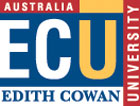Bachelor of Science (Environmental Management)
Bachelor of Science (Environmental Management)
Ready to play a key role in our environmental future? In this major, you’ll develop a specialisation in the core areas of environmental management including the sustainable management of natural areas and urban landscapes. Learn the biological and physical aspects of our environment and unlock the skills needed to manage…
Categories
COURSE DESCRIPTION
Ready to play a key role in our environmental future?
In this major, you’ll develop a specialisation in the core areas of environmental management including the sustainable management of natural areas and urban landscapes. Learn the biological and physical aspects of our environment and unlock the skills needed to manage it. This major also covers multidisciplinary topics including scientific, economic, legal and societal issues.
Learning Outcomes
Apply broad discipline knowledge to a range of theoretical and practical environmental science situations.
Analyse environmental data using a range of scientific approaches.
Draw conclusions from field, experimental and/or theoretical approaches to generate solutions to environmental management problems.
Synthesise relevant information from multiple sources using environmental, digital and managerial literacies and technologies.
Communicate environmental science knowledge and values in professional and public contexts.
Incorporate diverse perspectives into scientific practice, applying a global outlook and including Aboriginal and Torres Strait Islander cultural perspectives.
Work collaboratively with others, encompassing social, sustainable and ethical values into scientific practice.
Apply own learning to professional practice.
Career Opportunities
Employment opportunities
The strong management focus of this course prepares graduates for careers in government agencies and industries which deal with conservation of biodiversity, environmental impact assessment and management of activities, environmental planning and the management and rehabilitation of specific ecosystems. Students benefit from a learning environment inspired by world class research academics with strong industry, NGO and government links.
Possible future job titles
Environmental Officer, Environmental Consultant, Catchment Officer, Natural Resource Officer, Environmental Management Officer, Conservation Field Officer, Land Management Officer, Environmental Consultant, Landcare Officer, Environmental Educator, Coastcare Officer, Marine Park Ranger, National Park Ranger, Bushland Crew Leader, Park Planner, Sanctuary Manager, Ecotourism Officer
REQUIREMENTS
There are various ways to meet our admission requirements, such as:
Secondary school results
Successful completion of one year of tertiary study from a recognised institution
Completed Diploma program from a recognised institution
English competency requirements:
IELTS Academic: An overall band minimum score of 6.0, with no individual band less than 6.0. (Results are typically valid for 2 years and online tests are not acceptable.)
TOEFL iBT: 70 (no individual score less than 17)
TOEFL Paper-Based Test (PBT): Minimum score of 550, including Test of Written English of 5 or better. (Results are typically valid for only 2 years.)
Pearson Test of English (PTE) Academic: 52, with no scores less than 50. (Results are typically valid for only two years.)
EDUCATIONAL INSTITUTION
Edith Cowan University (ECU) is a large, multi-campus institution serving communities in Western Australia and internationally.ECU was awarded university status in 1991, but despite its relative youth, the University has a proud history of more than a century of service to education in Western Australia and is recognised for its teaching and learning, excellence in research, and partnerships with the community.We have more than 23,300 students, including around 18,500 undergraduates and 4,800 postgraduates. Approximately 3,600 international students attend the University, originating from 104 countries.We are a progressive University with courses developed through ongoing industry input, and employing lecturers who engage fully with their students. We’re a university that knows while knowledge is important, understanding comes from experience –experience that enables you to adapt what you’ve learned to whatever opportunities come your way. Because that’s when you do more than just survive in this world. You thrive in it.

